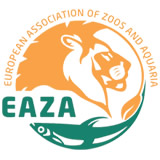Back in September our Head of Development, Andy Hinton, and Bird Team member, Ben Cox, headed out to South Africa for our annual conservation field trip to Dronfield Nature Reserve, near Kimberley in the Northern Cape. They also spent some time in Mokala National Park and were lucky enough to take a trip to the Kalahari Desert in northern South Africa. This trip is bittersweet for those who attend. (more…)









